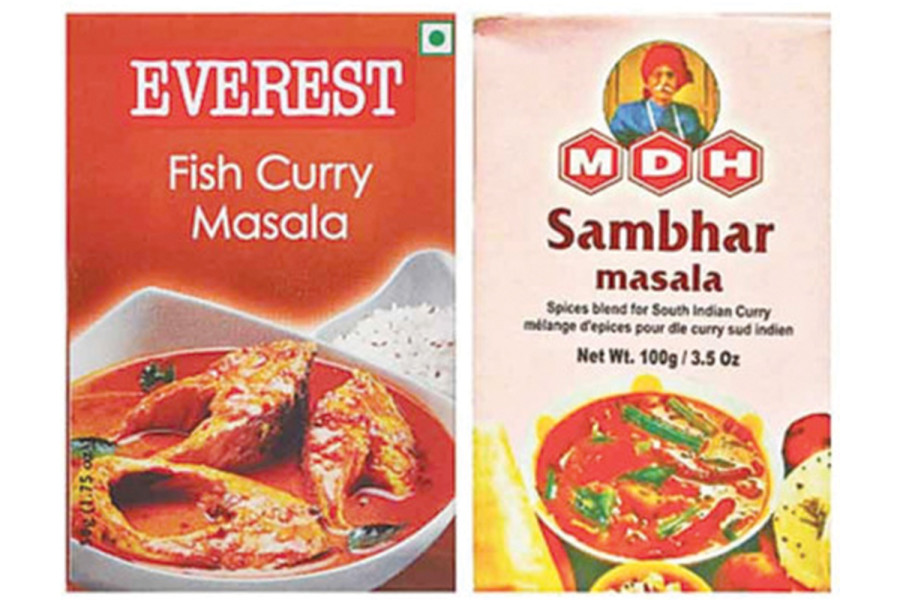Money
Nepal delays lab test of Indian spice brands MDH and Everest
Importers are said to have recalled the products from markets, but many online shopping sites show the spices in stock.
Post Report
Nepal is delaying the lab test of Indian spice brands MDH and Everest, which the country banned two weeks ago. These products were found to contain ethylene oxide, a cancer-causing chemical, and several countries have launched an investigation.
On May 18, Nepal’s quality watchdog, the Department of Food Technology and Quality Control, banned the sale and import of popular Indian spice brands MDH and Everest with immediate effect. The quality watchdog also decided to recall and seize products that are in the customs clearance process.
After nearly two weeks, the department said they had requested India to provide chemicals but the neighbour had yet to respond.
“We lack the capacity to conduct the lab test on ethylene oxide. Soon after the ban, we asked India’s Food Safety Authority for chemicals and methods for lab testing. There is no further development,” said Mohan Krishna Maharjan, spokesperson for the Department of Food Technology and Quality Control.
According to the department, the lab test will help determine the level of ethylene oxide in Everest and MDH spice brands.
Maharjan said that the problematic batch of spice has already been banned and recalled, so it is not available in the market. “The important thing is that the batch of banned spice is not reaching consumers’ kitchens, so we do not need a lab test report immediately.”
Though the department said that the importers had recalled the product, few online shopping sites showed the availability of fish curry spice from Everest in their stock.
Online shopping platforms like thulo.com, pricemandu.com, bpazes.com, and wholesalepasalplus.com showed 50 gm of spice available.
Consumer rights activists said that when consumer rights and public health are not the government's priority, they do not matter to them.
“The delay shows how irresponsible our government is towards consumer rights and public health. It has been two weeks since the country banned the spice, but the department is still ignorant of the level of ethylene oxide in the spice sold in Nepal,” said Bishnu Prasad Timilsina, general secretary of the Forum for Protection of Consumer Rights Nepal.
But Maharjan said that when other countries conduct the test, performing the lab test in Nepal is optional.
Maharjan said that the department has directed the importers to recall the problematic batch of spice from the market. “We are yet to get data from importers on the quantity and value of the spice recalled from the market.”
The department has requested the test report from domestic importers. Maharjan said that once the lab test report arrives, action will be taken regarding the recalled spice.
The department said the domestic importers of Everest and MDH brands had not sought permits to import the spice from India as the sales declined soon after the news on ethylene oxide in the spices surfaced.
Nepal moved to ban the spice following the bans by several countries, including Singapore and Hong Kong, and scrutiny by the Australian and Maldivian authorities. Malaysia is the latest country to ban the spices.
After deciding to ban the spice, the department said it would allow its sale, import, and distribution once it was cleared from the manufacturing country, with proof of safety for consumption.
Experts say the presence of ethylene oxide, a flammable colourless gas with a sweet odour, in the spices is concerning, as varieties of the products of both companies are easily available in Nepal and are popular, too.
Ethylene oxide is primarily used to produce other chemicals, including antifreeze. In smaller amounts, it is also used as a pesticide and sterilising agent.
Lymphoma and leukaemia are the cancers most frequently associated with occupational exposure to ethylene oxide. Stomach and breast cancers may also be linked to ethylene oxide exposure.




 10.12°C Kathmandu
10.12°C Kathmandu













